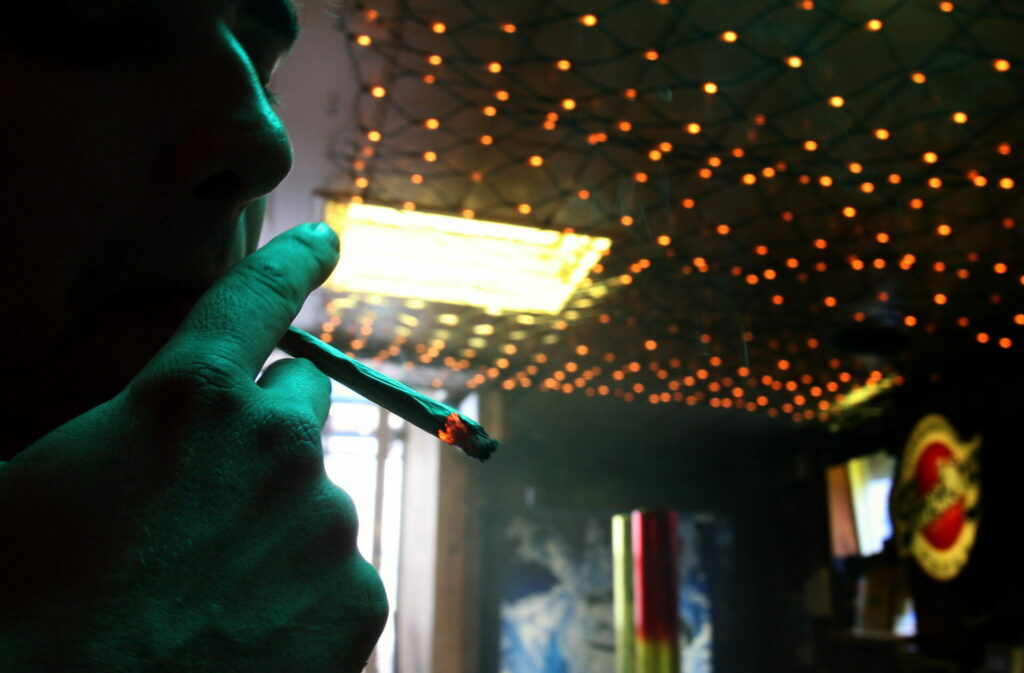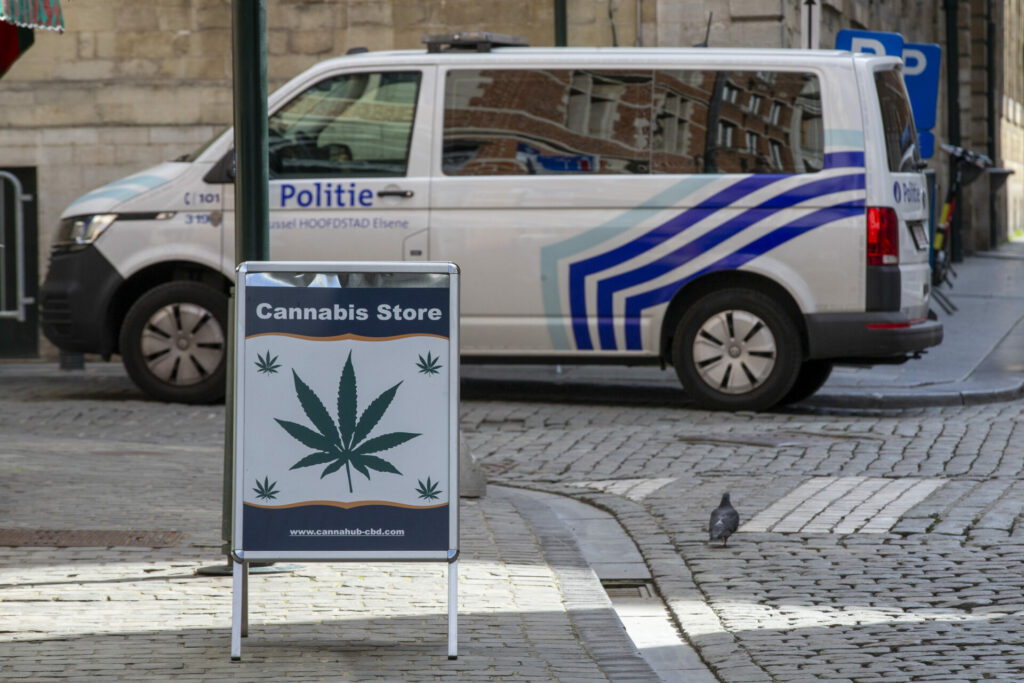A solution to the drug and security problem in Belgium's bigger cities, such as Brussels and Antwerp, could be legalising the sale and use of cannabis, according to Federal Economy and Employment Minister Pierre-Yves Dermagne.
The Federal Government has already allocated a budget of an extra €1 billion for the police and the justice department, but that figure might grow when the authorities have balanced the budget.
In any case, current resources must also be targeted "more effectively," Dermagne told De Morgen.
"When we talk about the drug problem in Belgium, a radical reform comes to mind: we have to consider the legalisation of cannabis," he said. "If you look at our neighbouring countries, three of the four have already done this today: the Netherlands, Luxembourg and recently Germany."
For Dermagne, "it no longer makes sense" to keep asking the police to endlessly prosecute cannabis users and put them in prison. "This repression does not work."
Generating money for the state
Officially, growing or possessing cannabis is currently still a crime punishable by a fine or imprisonment in Belgium. However, offences have been given a "low prosecution priority" under the conditions that the perpetrator is older than 18, the drug was meant for personal use, it concerns less than 3 grams, and the possession does not come with "aggravating circumstances or disturbance of public order."
The country's drug law is 101 years old and the need to update it has been addressed multiple times. Last year, Brussels City mayor Philippe Close – like Dermagne, also a member of the Francophone socialist PS party – repeatedly called on the authorities to decriminalise the use of cannabis in Belgium, as a first step towards legalisation.
"Simply decriminalising cannabis use makes no sense to me," Dermagne said. "We need to legalise in order to organise the cultivation and sale, which will also generate revenue for the state."
Recently, the University of Düsseldorf has estimated the benefit of legalisation for the German Government at €4.7 billion per year. In Belgium, it would result in around €660 million per year, including through excise duties such as on alcohol and tobacco, said Dermagne. "Money that can be used for the police, justice and prevention."

A man smoking a joint in a coffee shop in Maastricht. Credit: Belga/Michel Krakowski
Still, he stressed that he understands the social damage that legal drugs such as alcohol and tobacco already have and added that he knows cannabis is not innocent. "I have two children who are entering puberty. I am sensitive to the health problem posed by cannabis."
"But this is not about promoting cannabis. Not at all. Still, you have to be realistic: cannabis is ubiquitous and it is socially accepted. You cannot go to a summer festival without smelling a joint," Dermagne explained, adding that banning it will not help the country move forward.
Legalisation is "a matter of common sense," he said. "It would allow us to better guide users, to prohibit sales to minors, to take over an important source of income from the criminal environment – including terrorists – and to allow the police to focus on bigger problems. Hard drugs such as coke and crack are much more harmful to health and to our social fabric."
Prohibition?
Implementing a model like in the Netherlands, however, would not be ideal either. "It is a bit hypocritical because the sale is legal but the cultivation is not. I am especially looking at Germany, where users join an association that collectively grows cannabis and sells it to the members." A member of such a cannabis club can buy up to 50 grams per month, if they are over 21 years old. Smoking is not allowed on site.
While political parties such as the Flemish rightwing N-VA and the Francophone liberal MR have spoken out against legalising the drug in recent months and years, Dermagne underlined how the fight against cannabis eats up human and financial resources, with little result.
"At best, small dealers get caught. A legalisation of cannabis would work more coherently. Or are people in our neighbouring countries out of their minds?" he asked. "Are Germany, the Netherlands and Luxembourg run by far-left governments full of idiots? Do people in American states such as New York and California have no idea how the world works? In the US they know: prohibition does not work. They once tried it with alcohol, and it had the opposite effect."
Related News
- Germany to legalise restricted cannabis consumption
- Legalising cocaine would stem drug violence, Belgian criminologist suggests
- 'Dare to legislate': Brussels mayor repeats call to legalise cannabis
Cannabis is often seen as a "gateway drug," with users later switching to hard drugs such as coke, for example, but Dermagne stressed that there is no scientific research to back that up. "With moderate use of cannabis – mind you, I say moderate – that would not be the case. Again, I am not minimising the risks of cannabis. But by continuing like we are, we sweep those risks completely under the rug."
On Thursday morning, MR leader Georges-Louis Bouchez immediately reacted to Dermagne's proposal, stating on Bel-RTL radio that his party does not support decriminalisation or legalisation of cannabis, adding that now is not the time to send such a signal to the population.
"This comes at the wrong time. Today, the difficulties caused by drug consumption, particularly hard drugs, pose problems in cities. This is not the time to send a signal of decriminalisation, of laxity," Bouchez said.

